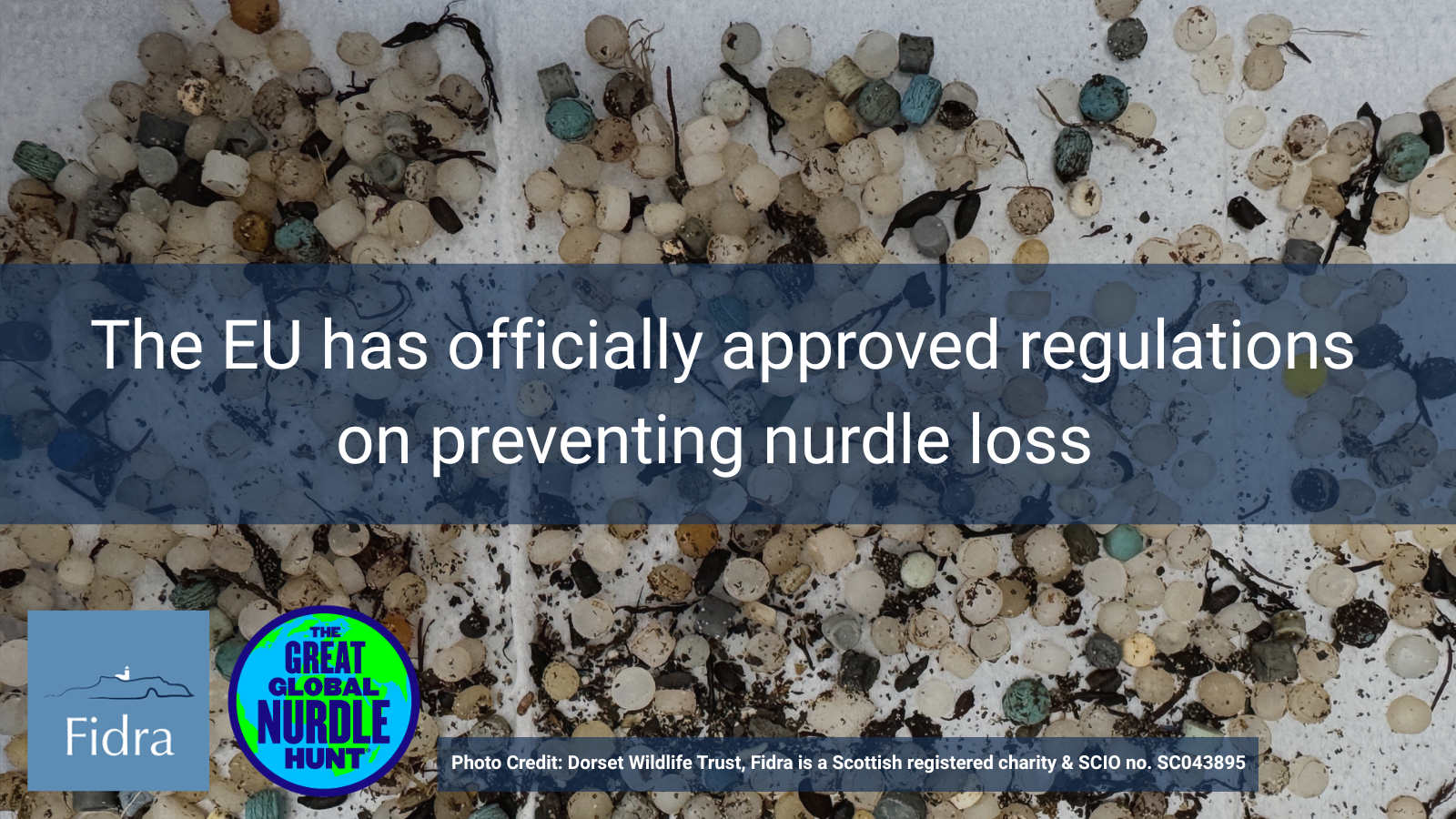Fidra are thrilled to see this progress and we owe a huge thank you to all the dedicated nurdle hunters out there. Data from the Great Global Nurdle Hunt has played a real part in pushing for this legislation, showing just how powerful citizen science can be in driving change.
A huge win in the fight against plastic pellet pollution
The new laws mean mandatory spill prevention measures will apply to every stage of the pellet supply chain, from production to storage, transport, cleaning, and reprocessing and will include maritime transport which is a major source of nurdle pollution. These measures will include things like, adapted packaging, staff training, and mandatory certification of compliance by an accredited body for medium and large operators (handling over 1,500 tonnes of pellets annually). This will also include requiring annual reports on plastic pellet losses from both EU and non-EU carriers, setting a strong precedence for the rest of the world that compliance and accountability are essential to preventing plastic pellet loss.
Data from The Great Global Nurdle Hunt played a crucial role in driving this change. The collective efforts of thousands of volunteers across hundreds of countries helped gather vital evidence showing just how widespread plastic pellet pollution has become. Every nurdle counted on beaches, riverbanks, and land painted a clear picture for policymakers that pellet loss is not an isolated issue, but a persistent and preventable source of microplastic pollution. This citizen science data helped provide the proof needed to show that voluntary industry measures were not enough, and that binding legislation was urgently required.
A huge thank you goes out to all our nurdle hunters your dedication and data collection helped turn years of advocacy into real environmental progress.
But we’re not done yet. We now need to see similar laws introduced in the UK and across the globe to stop pellet pollution at its source, ensuring no pellets are lost to the environment anywhere.
Some limitations in the regulations remains
Though the regulations are strong step in preventing loss, unfortunately smaller operators are largely exempt from stricter requirements, limiting the law’s impact. Companies that handle less than 1,500 tonnes per year will only be required to submit self-declarations of compliance with the prevention measures with no independent oversight, and will be subject to one off certification every five years. This risks leaving thousands of businesses outside meaningful enforcement undermining the regulations ambition for an effective zero pellet loss goal and a full supply chain approach.
The Great Global Nurdle Hunt is ongoing throughout the whole of October - take part to contribute valuable data that can drive real change around the world!
